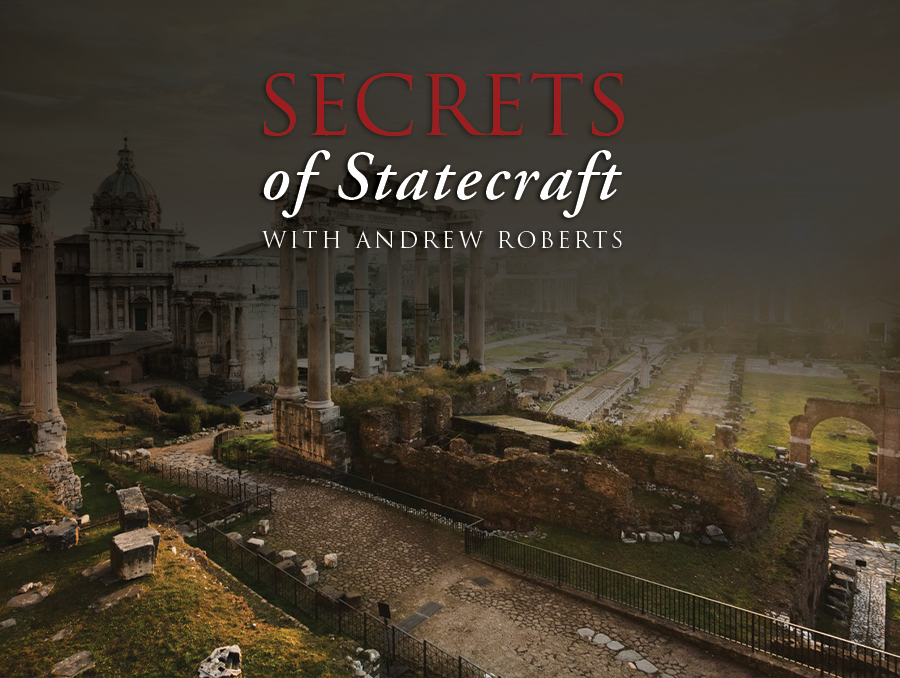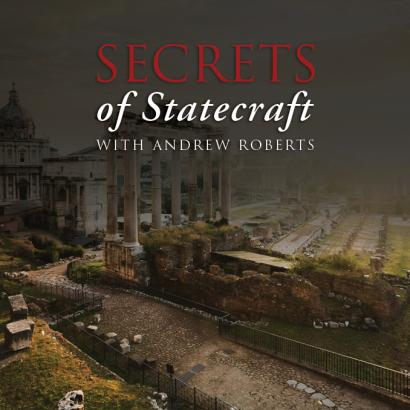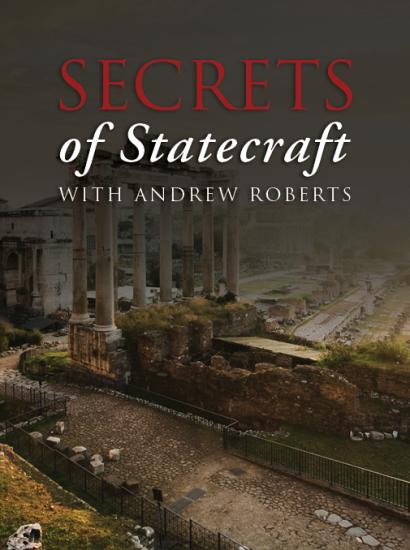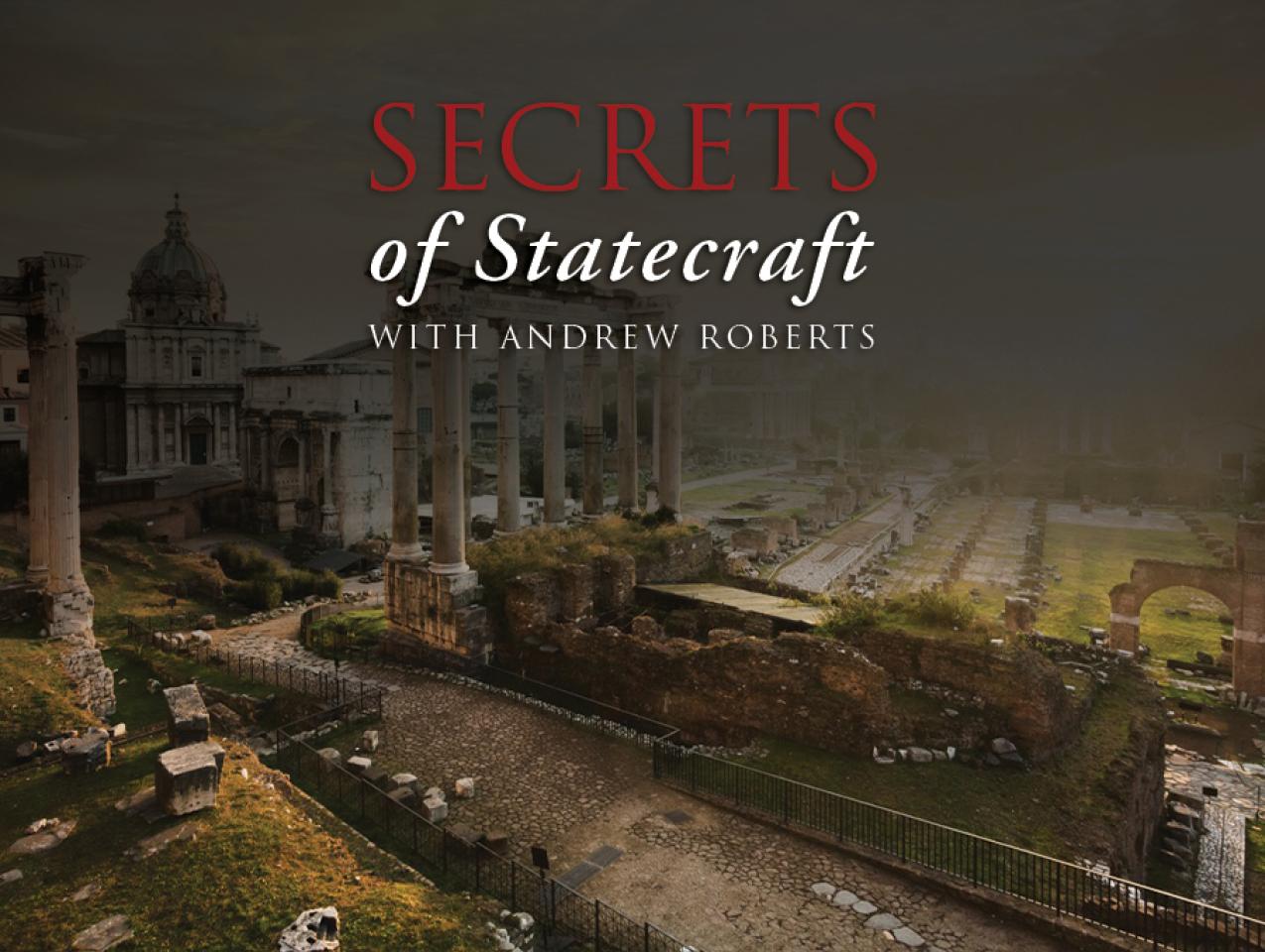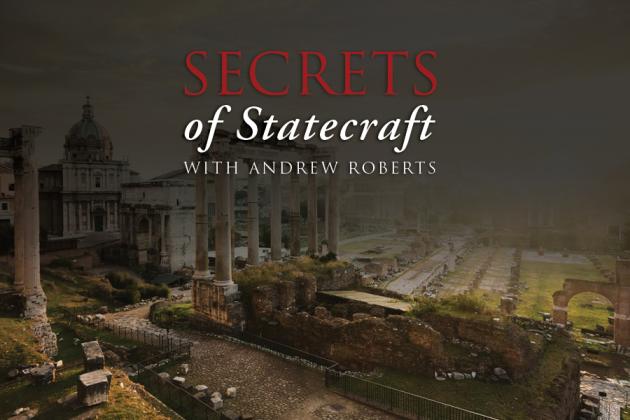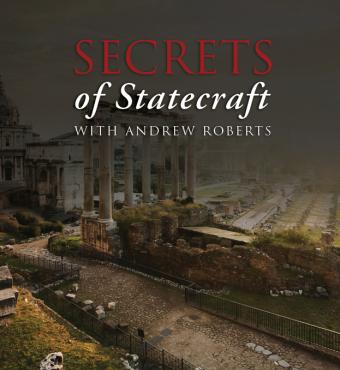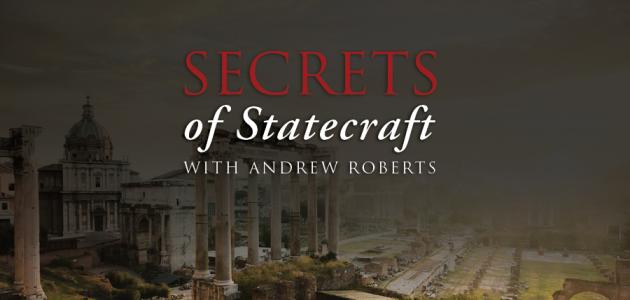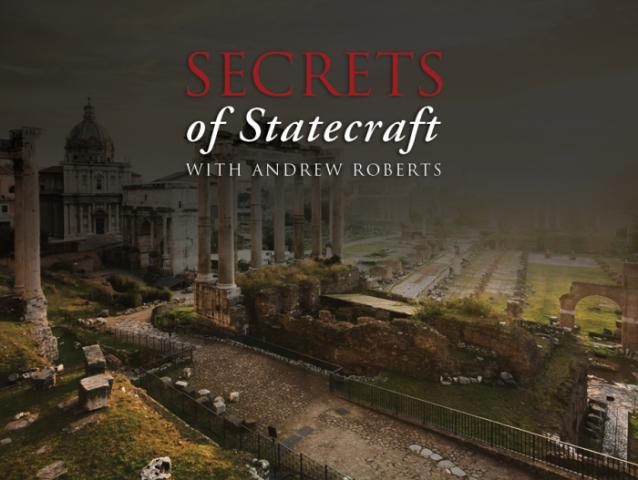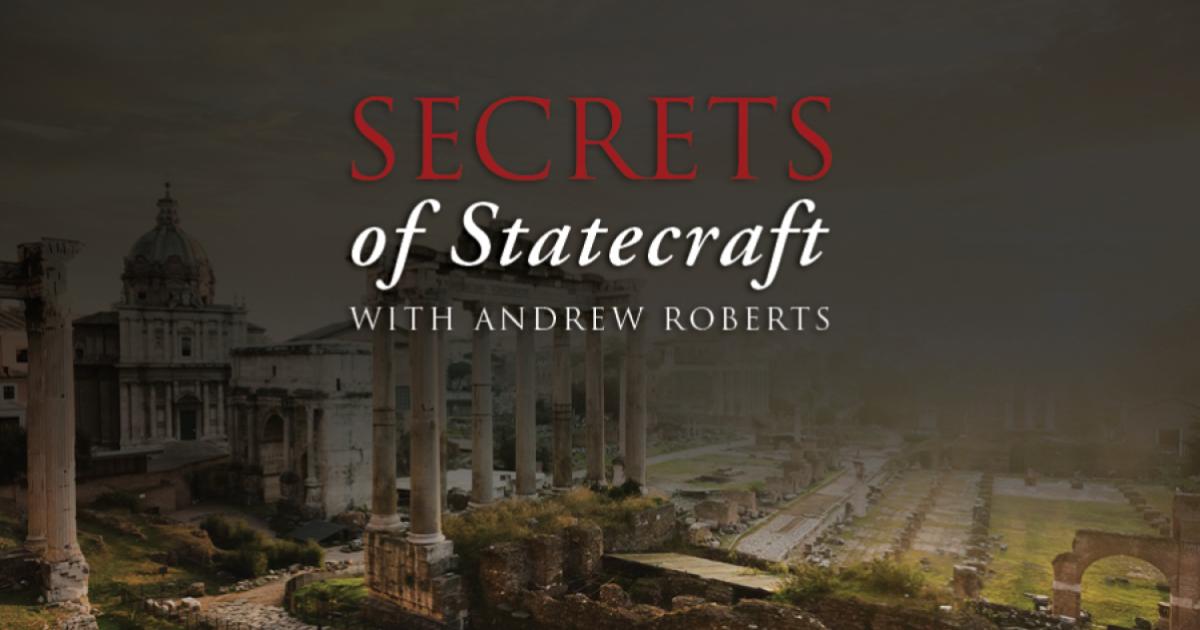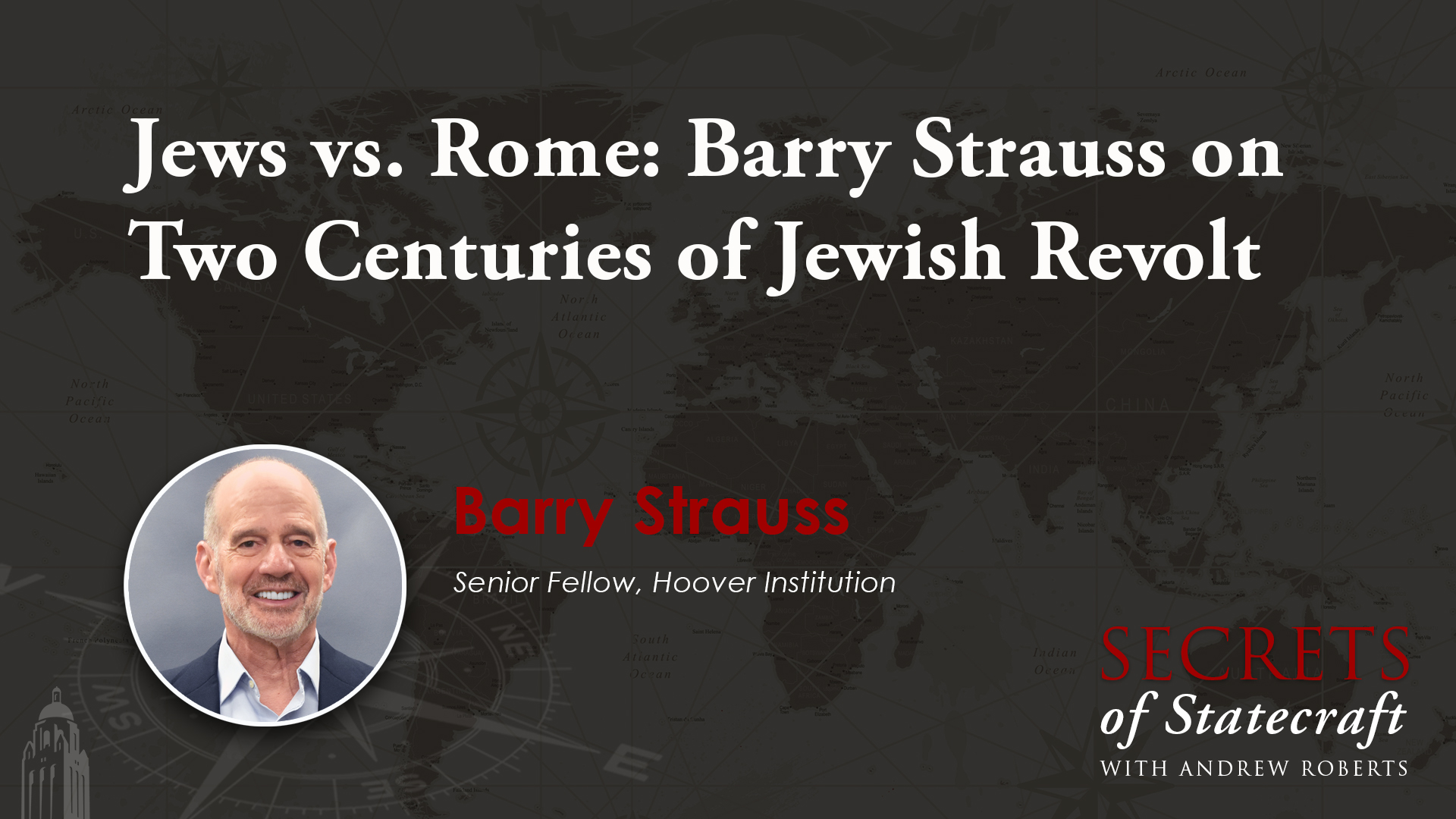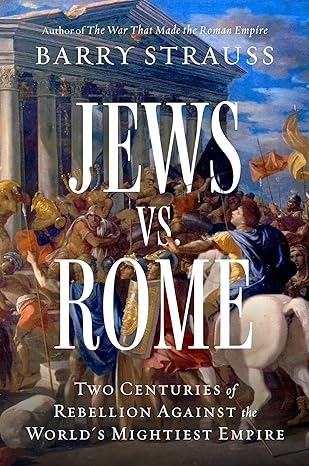- World
- Military
- Revitalizing History
Why did the Jews keep fighting Rome for over 200 years — long after the Great Revolt ended in disaster? Hoover Senior Fellow Barry Strauss discusses the epic story of Judea’s rebellions against the world’s most powerful empire in this conversation and in his new book, Jews vs. Rome: Barry Strauss on Two Centuries of Jewish Revolt. From the fall of Jerusalem and the siege of Masada to the guerrilla war of Bar Kokhba, Strauss reveals the key players, stunning twists, and surprising alliances — including ancient Iran’s role as an ally of the Jews. Strauss also describes unforgettable characters like Herod the Great, Josephus the historian-turned-traitor, and fearless queens who shaped the fight. Packed with ancient drama and lessons for today, Strauss’s book brings one of history’s most remarkable struggles to life.
>> Andrew Roberts: Mr Barry Strauss is a Senior Fellow at the Hoover Institution and Professor Emeritus of Cornell University. Barry, tell us about the Great Revolt.
>> Barry Strauss: Well, the Great Revolt pitted the Jews of Judea against the Roman Empire. It broke out in the year 66 and was crushed in the year 70 with little mopping up operations in 73 or 74, ending famously at Masada.
The Jews defeated a Roman legion at the very beginning of the revolt, which in a way was not a blessing for them because it gave them the impression that they were going to succeed and could defeat any army that the Romans sent. In fact, the truth was just the opposite.
The Romans sent a new army under a veteran general. He was able to he started in the north, defeated the revolt entirely in the north, and then eventually headed towards Jerusalem, took a break because of a civil war in Rome that ended up with himself becoming the emperor, replacing Nero.
And then he sent his son with a new army against what had become the Jewish fortress, the city of Jerusalem. And he laid siege to the city of Jerusalem. It was a very difficult siege. The Jews were extremely good at raiding, attacking the Romans and defending themselves. But after five months, the Romans broke through entirely.
They destroyed the Temple, which was the symbol and the center of Jewish resistance, the heart of the resistance, and then destroyed the rest of the city, utterly crushing the revolt and killing many Jews and sending many others into slavery abroad.
>> Andrew Roberts: Under those circumstances, and considering you've subtitled the book Two Centuries of Rebellion against the World's Most Powerful Empire, why did the Jews keep on rebelling after losing the Great Revolt so terribly?
>> Barry Strauss: The Jews kept reveling for two reasons. For one thing, although the Romans had defeated them quite handily, the Romans had not crushed them entirely. I think the Romans misunderstood. The Romans thought that by destroying the Temple, they would wipe out the Jewish spirit of resistance. They underestimated the importance of the Torah.
They underestimated the power of what we might think of as lay leaders, the sages and the scholars who would become the rabbis. They underestimated the persistence of apocalyptic and Messianic feelings among the Jews. And they also underestimated the importance of the connection between the Jews of Judea and the Jews of the Diaspora, both in the Roman world and more importantly in the Parthian Empire, which gave the Jews a refuge and the possibility of help from abroad.
On the other hand, the Romans mismanaged the situation again, as I said, by allowing Jewish forces of resistance to survive, but also by insisting on humiliating every Jew in the Roman Empire. Whether he he had supported the revolt or not, by making them pay a tax to the pagan God of Rome, to Jupiter of the Capitoline Hill, which was deeply resented by Jews everywhere in the Roman Empire.
>> Andrew Roberts: Could any of these rebellions have succeeded or was Rome just too powerful?
>> Barry Strauss: It's a good question. It would have been a very tall order to succeed against Rome. But they could have succeeded under two circumstances. First of all, and this was the great hope of the Jews, if the Parthians had.
If the Parthians had intervened in force to help the rebels, then that would have been successful. Just as, if we take by analogy the American Revolution, the intervention of the French on the side of the American rebels was absolutely decisive in defeating the British Empire.
>> Andrew Roberts: French always there when they need you.
>> Barry Strauss: What was that? French are always there when they need you. Well, the Americans thought so. Depends on your point of view. Yeah. So Parthian intervention would have, I think, changed everything. But failing Parthian intervention, if the rebels in Jerusalem in the Great Revolt had not insisted on fighting each other and killing each other and burning their own grain supply, then they could have made fortress Jerusalem even more mighty than it was.
And in that case, the Romans might have had to agree to some sort of compromise solution rather than the destruction of Jerusalem and the temple that it ended up as.
>> Andrew Roberts: Considering the role the Parthia played, and was the ancient Iranian empire in such an important role in these.
It's quite a surprise, isn't it, that Iran is quite so hostile to Israel today, considering its support for Jews in the ancient world?
>> Barry Strauss: Yes, I mean, the Parthian Empire had a great relationship with Jews in this period. Earlier, Cyrus the Great, the founder of the Achaemenid Persian Empire, also an Iranian empire, famously allowed the Jews to return to Judea from their exile in Babylon.
And historically, Iranians and Jews have had relatively good relations over the millenn. Hence the current hostility of the Islamic Republic of Iran to Israel is an aberration. It's not the normal state of affairs. And there's every reason why Israel and Iran should be allies rather than enemies.
>> Andrew Roberts: You've got so many enormous characters in this book.
One of the reasons I enjoyed this book so much. You've got Pompey, Queen Helena, Herod the Great, Tiberius Nero and so on. What are the. Who are the most unusual or striking or outstanding personalities that you write about or you discovered, at least in your research?
>> Barry Strauss: Yeah, well, I mean, there's so many.
One who was a surprise to me was Pacorus, the Parthian crown prince who invaded and conquered Judea basically only a generation after Pompey had conquered it for Rome. He reconquers it for Parthia and sets up a puppet king of his own. Just as Pompey had set up a puppet ruler there.
Puppet king of his own and threatens to bring Judea onto the side of the Parthians. Alas for him, he goes on to being defeated in battle, decapitated, having his head sent around to the various cities of the Roman east to show who's boss. Really interesting figure. There's also Queen Helena of Adiabeen, the ancient equivalent of modern Iraqi Kurdistan.
She and her dynasty improbably convert from paganism to Judaism. She becomes a great supporter of Judea, moves to Jerusalem when there's a famine. It's she and not the Roman authorities who feed the starving people. She's much beloved, much remembered, and her grandsons fight for the rebels in 66.
Around the same time, there's also Tiberius Julius Alexander, who comes from the most prominent Jewish family of Alexandria, Egypt. His uncle is no less a figure than Philo, the great philosopher. He spends his life fighting for the Romans, serving the Romans as governor and also as an important soldier.
And although his father had donated gold doors to the temple in Jerusalem, Tiberius Julius Alexander is chief of staff to Titus when Titus is laying siege to Jerusalem. And although he votes for saving the temple, it's under his watch that the temple temple is destroyed. So he is a fascinating and tragic figure.
>> Andrew Roberts: Tell us about Herod the Great.
>> Barry Strauss: Herod the Great. There's so much to say about Herod. I mean, probably best known in the west because of the Massacre of the Innocents in the New Testament, an event which may or may not have happened. But Herod, although he was a tyrant and a bloody tyrant, he also was a man of vision who devoted his life to making Judea and Rome work together.
He was one of the most important provincial leaders under Augustus. And on the one hand, he was so devoted to Judaism that he rebuilds the temple to its greatest splendor in all of antiquity and gives Jerusalem its greatest period of prosperity until modern times. On the other hand, he decides to rebrand Judea as a Roman province.
And he builds no less than three grand temples to Augustus in Judea. And he builds a new city, a new port city, Caesarea Maritima, Caesarea by the sea, which ultimately becomes the Roman capital. And Caesarea Judea is going to be a pagan city with a temple to Augustus, with an amphitheater, with a hippodrome.
So he looks both ways, and he's keeping a lid on Jewish descent and keeping Judea an important ally of Rome in the eastern marches of the Roman Empire.
>> Andrew Roberts: These are famous, these revolts on this. So why write another book on them? Why now, at least?
>> Barry Strauss: Yeah, so when I first got the idea of writing this book, which was before October 7, 2023, I actually started on this book in 2020.
I was really struck by the fact that Parthia, the Iranian empire, had played such an important role and from the point of view of the Jews, such a positive role, so different from the relationship between Israel and Iran today. And so I wanted to look at this. I wanted to look at these revolts and say, well, what is the Parthian connection?
Certainly others had looked at this question before, but I felt that they had left a lot on the table and there was still a lot to look into. And so this is, in a way, my guiding thread as I looked through these three revolts and I found it utterly fascinating.
>> Andrew Roberts: Yeah. And these revolts, they go on for, as you say, two centuries of rebellion. It's quite a thing. I mean, the equivalent would be if the Americans lost the Battle of Bunker Hill, that they keep on fighting until 1974. It's a pretty extraordinary, isn't it? Just the sheer resilience of the Jewish people.
Which brings me on to. You mentioned the siege of Jerusalem. Can we talk about the siege of Jotapata in 67 AD, which goes on for 47 days before Vespasian crushes and destroys the. The people holding out. Tell us about that because you've used one of the lovely things about this book is you use modern archaeology to back up theories of yours.
So tell us about the siege of Jotap.
>> Barry Strauss: So Jotapata was a small city in Galilee between, let's say, Nazareth and Lake Tiberias, and it was defended. The leader of the resistance in Jotapata was Josephus, the man famous for becoming a traitor to the cause of the rebels.
But he does a manifold job of holding out against the Romans under very difficult circumstances. There's city is short on water, the siege is taking place in June and July where the average daily temperature goes up to 90 degrees Fahrenheit. It's brutal circumstances and the rebels hold out quite well.
But ultimately it is a one sided affair and there's no way to stop the Romans from winning. Very important for us as students of history because it's a rare case of an ancient siege where we have an eyewitness from the point of view of the defenders who's able to give us his account of what happen.
The archaeology is utterly fascinating. Luckily for me, I met the chief excavator, an Israeli named Matti Aviam, who gave me a personal tour of the site which he had excavated in the 1990s. And his own experience during the 1973 war, I think illuminated what had happened there. So absolutely fascinating place.
>> Andrew Roberts: And Josephus says that 40,000 people died there, whereas it's quite clear from the evidence that that's like 20 times more people than could possibly have actually died there. How reliable. And he's a very important figure. His book the Jewish War is a central text to all of this.
How reliable is he therefore, as a historian to use?
>> Barry Strauss: Well, he's not reliable or he's only reliable in parts. He is writing under very difficult circumstances. After the siege of Jotapata, which he survives under very lo circumstances, he goes over to the Romans and he's living in exile.
After the Great Revolt, he lives the rest of his life in exile in Rome, where he is a client of the house of Vespasian, the Flavian dynasty. They're supporting him and he writes these books mostly to a Jewish audience, but also knowing the Romans are looking over his shoulders.
He writes his books in Greek, which is the language of educated Romans in this period, much as French would be later on in, in Europe. And so he has to be careful what he says, but he wants to Defend himself. He wants to defend the Jewish people, and he wants to defend the God of the Jews, who he feels is presiding over everything that happened.
So he must be taken with huge grains of salt. And yet in some ways, he is a very good guide. He's a wonderful storyteller and a fantastic eye for detail. Deeply impressive. In that sense, the numbers are highly questionable. He's not the only historian of the ancient world who exaggerates the numbers.
These are cultures in which competitive exaggeration is part of the game. So we as historians have to try to put them into perspective wherever we can.
>> Andrew Roberts: We get that with Herodotus a lot With Herodotus, too.
>> Barry Strauss: Yes, yes.
>> Andrew Roberts: You mentioned 7th of October. What are the lessons, if any, for today?
>> Barry Strauss: There are many lessons for today, as there always are from history. For one thing, the importance of cohesion and unity when you go to war. The fact that the Jewish rebels seem to enjoy more killing each other than killing the enemy, killing the Romans hurt them a great deal in this revolt.
And we know that disunity, dissent, lack of cohesion in Israel is one of the things that encouraged the other side to attack on October 7th. So there's a lesson there for Israel and for every society. Second, as I mentioned earlier, the relatively good relations between the Jews and the Iranians in this period should be a lesson for us today that there is no reason for these two countries to be at war.
And clearly the onus is on the Islamic Republic, which has made its priority to destroy the state of Israel. Certainly nothing that Israel has done has brought them to this case. Third, there is a lesson in Jewish resilience. As you mentioned earlier, the fact that the Jews could survive this, that already in antiquity they were such an engine of resilience to survive this, to lose all these revolts and then to go on and survive to this day tells us something about their ability to overcome adversity.
Really quite remarkable. And finally, I think there is a lesson here for the Palestinians, if I may, that there's only a limited amount that you want to spend your time hitting your head against a wall. That is not going to go away. And that sometimes, however heroic it might seem to you, although there's certainly nothing heroic about making war on civilians, however heroic it might seem to you to resist violently, sometimes wisdom is to negotiate a solution.
>> Andrew Roberts: And we just gotta hope that it's not gonna take 200 years.
>> Barry Strauss: We have to hope it's not gonna take 200 years. And I hate to tell you, the revolts went on even beyond 200 years, but the main ones were over then.
>> Andrew Roberts: We tend to focus obviously all the time on the mistakes that the Jewish rebels made, but actually the Romans made some too.
So tell us about that.
>> Barry Strauss: Yes, the Romans made a number of mistakes. For one thing, they underestimated the ability of the rebels because they tended to look at people who didn't have a regular army as not a very serious threat. And so they allowed, at the very beginning of the revolt, they allowed a legion to be destroyed by these Jewish irregulars who captured them, who attacked them in a valley, I might say a canyon.
But I've looked at it and it's not really all that impressive as a canyon. It's a valley and they virtually destroy the legion there. For another thing, they don't have the right mixture of carrots and sticks. After the revolt, they think, well, we've destroyed Jerusalem, that's not enough.
We've got a legion garrisoned in the ruins of Jerusalem. We don't have to worry about these people again, so we'll humiliate them with this tax. It's just the wrong combination of things. There's a right combination of incentives to give a defeated people to make sure it doesn't happen again.
And they did not play the game correctly.
>> Andrew Roberts: Some Jews supported Rome, didn't they?
>> Barry Strauss: Yes.
>> Andrew Roberts: Why did they do that?
>> Barry Strauss: Some Jews supported Rome, I think, through a combination of motives. For some of them it was personal profit. The Romans were extremely good in their empire and looking at seeking out the big men and women in the places they conquered and said, if make a deal with us, you'll do very well under the Roman Empire.
There are others, I think, who admired the Roman Empire, which was, after all, quite remarkable in what it had done, and they wanted to be part of it. And there was a third group who just thought, look, there's nothing else we can do, there's no choice, we want to be independent.
But let's get real, it's not going to happen. And if I might say, a fourth motive was that the people who supported Rome tended to be the wealthier people and the more established people in society. And some of them looked on the Romans as a bastion against their own lower classes and their own poor and their own crazies as they saw it.
So they liked the Roman Empire for that reason as well.
>> Andrew Roberts: Let's talk about some of the people who didn't sort of collaborate, though, with the Roman Empire. Tell us about John of Gischala.
>> Barry Strauss: So, John of Gischala, so he came from this city, a small city in what is now Northern Israel near the Lebanese border.
The Jewish name of the town is Gush Halav, and the Arab name is Jish. And he at first was a supporter of the Romans, since he himself was a wealthy man. But when he saw how the Romans had treated Jews in what is now Lebanon and Syria, he went over to the other side, and after resisting the Romans in his hometown, he fled with a group of his supporters to Jerusalem.
And he's one of the leaders of the rebellion in Jerusalem. He feels that Jerusalem, an impregnable city, which it was on three sides, but Jerusalem had a fourth side and not so impregnable there. And he was a good speaker. And he said that the Romans will take this city when they have wings.
Alas, for him, they had catapults, and that helped as well. They had engineers.
>> Andrew Roberts: Simon, son of Giora.
>> Barry Strauss: Simon, son of Giora, yes. The Romans saw him as the chief leader of the rebels. Interesting guy. The name Giora tells us that his father or grandfather was a convert to Judaism, but he had the fervor of some converts.
Charismatic figure, a great warrior who gained support early in the war by his role in the defeat of the Roman legion. Also a populist of a sort. He promised to help the poor, to free slaves. He had quite a following. And he ends up having the largest group of fighters in Jerusalem and fighting the Romans.
>> Andrew Roberts: And then lastly, the leader of the 136 AD revolt, Simon bar Kokhba.
>> Barry Strauss: Simon bar Kokhba, yes. Simon bar Kokhba is his nom de guerre. It means Simon, the son of a star. And he's called the son of a star because there's a passage from the Bible which suggests that the Messiah, when he comes, will be the son of a star.
They connect the Messiah with the star, and his followers thought of him as a messianic figure. For the Jews, the Messiah was not a divine figure, someone divinely inspired, but a human being who would redeem Israel and bring the better world. But he was also a great Warrior, a very clever soldier who leads a guerrilla revolt against the Romans.
A revolt that creates underground fortresses, underground shelters, from which the rebels pour forth and utterly surprise the Romans.
>> Andrew Roberts: Unlike a lot of books on the ancient world, you've got a lot of women in this book, haven't you, playing important roles? You've mentioned Empress Helena, Queen Helena, but who are the other ones?
>> Barry Strauss: So another queen that's very important is Berenice. She is Herod's granddaughter and she is married to a princeling from Lebanon, which is why she becomes a queen. But she's a great supporter of the Romans and urges the rebels not to do this, not to pull the plug, cuz she thinks it'll be a disaster.
She ends up as the mistress of Titus, the commander who destroys Jerusalem, ultimately the Emperor. She follows him to Rome and she is the love of Titus life. He wants her to be his queen, but he is forced against his will to dismiss her, because the Senate will not tolerate another Cleopatra, as they see it, as the Empress of Rome.
So she's quite remarkable. We know about a woman named Claudia Aster. She is a Jerusalemite who is taken captive and sent off to Italy after the destruction of the Great Revolt. And she marries imperial freedman, that is to say, a former slave who rises high in the Roman administration and who marries this woman.
Was he a Jew? We don't know. Was she a Jew? Almost certainly, coming from Jerusalem. But on her tombstone she is described as a Jerusalemite who was taken captive, which I think is quite remarkable. She may have been named Esther, it's been speculated, and Claudia Aster became her Roman name.
Finally, there is Babatha. Babatha is a Jewish woman of means who lived in what is now Jordan. Her first husband died. She has a second husband and she is fighting for her inheritance. Her second husband is a supporter of bar Kokhba, and she and her husband end up fleeing to a cave in the Judean desert, where they hope to survive the revolt.
They do not, it seems, because she takes with her her documents, her legal documents, which were discovered in this cave in the Judean Desert. And they open a window into the world of life for a woman of means in the second century of our era. Really quite a fascinating figure, fascinating story.
>> Andrew Roberts: Your book's got lots of fascinating stories, lots of anecdotes. Is there any single one that sort of sums it up?
>> Barry Strauss: Is there any single one that sums it up? Well, I like the story of Patrick. Patricius is a figure from Galilee. We know nothing else about him except that he seems to be the leader.
Of a revolt in the year 351. Against the Romans, when you would have thought that all the fight would be out of the Jews. And yet here is this man, possibly considered a messiah himself, who's still waving the banner of rebellion centuries after it was all supposed to be over, as you know.
>> Andrew Roberts: I ask all my guests what they're reading at the moment. A history book or a biography that they've got on their bedside table, as it were. Anything leap to mind, Barry?
>> Barry Strauss: At the moment, I'm reading Tom Holland's. Translation of Suetonius, Lies of the Caesar, which is a marvelous retelling of that story.
>> Andrew Roberts: He does it well, does he?
>> Barry Strauss: He does it well. Yes.
>> Andrew Roberts: Well done, Tom. And what about your what if? Your counterfactual? Historical counterfactual.
>> Barry Strauss: The big what if is if her. Had had successors who were capable. He killed off his most capable sons because he thought they were going to kill him, which is probably true.
Great guy, Herod. And so he is replaced by an incompetent who eventually is fired by Augustus. But what if Judea had continued to be run by these rulers who got it understood, as Herod did? You gotta strike a balance between the Romans and the Jews. And what if there had never been a great revolt?
And what if Judea had remained a. Roman province and the temple had stood, as several Israeli scholars have said to me, that would have been great. We never would have been exiled from our homeland and the Jews would have been just like everybody else and gone on happily ever after.
Maybe.
>> Andrew Roberts: Instead, instead they became what you call Rome's most determined insurgents. They hold out for longer than the Germans, longer than the Gauls, longer than Carthage, longer than the Britons. And so they do sort of win the prize, as it were, Assuming it is a prize. That appalling, endless story of catastrophe and pain and suffering for 200 years.
>> Barry Strauss: Yeah, and longer even, because there are much lesser revolts later on. But kind of remarkable story.
>> Andrew Roberts: Thank you. Very well, and you've told it brilliantly. Thank you very much indeed, Barry, for coming on Secrets of Statecraft.
>> Barry Strauss: Thank you, Andrew. It's great to be here.
>> Speaker 3: This podcast is a production of the Hoover Institution, where we generate and promote ideas advancing freedom.
For more information about our work, to hear more of our podcasts or view our video content, please visit hoover.org.







